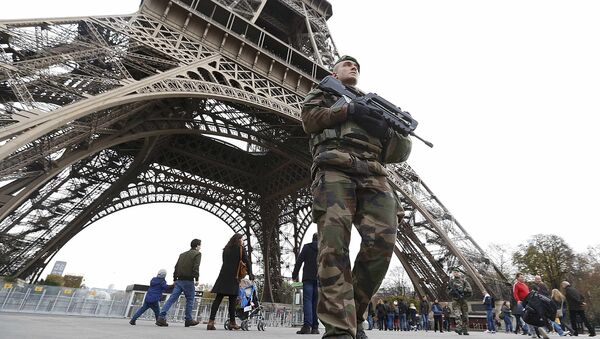A group of UN special rapporteurs and Europe's largest human rights group, the Council of Europe, have warned the French president of the risks involved. Thorbjorn Jagland, president of the pan-European human rights watchdog wrote in a letter to President Hollande:
"I would like to draw your attention to the risks that could result from the prerogatives conferred on the executive by the provisions that apply during the state of emergency if they are not accompanied by appropriate safeguards from the point of view of respect for fundamental freedoms."
Thorbjorn Jagland also warned of the "risks" involved in renewing emergency powers, including decisions on "circumstances in which administrative searches or house arrests may be carried out" and the use of firearms by French security forces.
"I sincerely hope that the current plans for constitutional and criminal-law reforms will secure this essential balance to which you are personally committed."
A state of emergency was declared in France following the terrorist attacks on 13 November 2015 which killed 130 people.
France's state of emergency and surveillance law negatively impacting human rights, UN human rights experts warn https://t.co/lynAo9SzwL
— Ben Ward (@Benjamin_P_Ward) January 19, 2016
It gives the government, security services and police more powers to ban organizations and public demonstrations. Police raids can also be carried out at any moment without a warrant and digital equipment seized from anyone whose "behavior can seriously be considered a threat to security and public order."
The least surprising development ever. What will be shocking is is France's "State of Emergency" ever ends. https://t.co/i16qocGhTy
— Glenn Greenwald (@ggreenwald) January 22, 2016
The government also has the power to block websites and social media accounts on the Internet for three months.
A state of emergency also allows beefed up counterterrorism measures to be passed quickly through parliament; such was the case following the Charlie Hebdo attack in January 2015, when France adopted a new surveillance bill, "Projet de loi relative au renseignement."
The new bill gave the government and intelligence agencies the authority to tap into any telephone or cellular data belonging to any suspected terrorist. It also gave agencies the right to plant recording devices in private property and install 'keylogger' devices that record key strokes on a computer keyboard.
France: @UNrightswire says state of emergency & digital surveillance law excessively restrict fundamental freedoms https://t.co/vz2FJGE6Dp
— United Nations (@UN) January 20, 2016
The warning from the Council of Europe follows concerns already voiced by human rights campaigners, who are worried that the state of emergency measures could remain permanently in France.
"They must be used only when strictly necessary and should not become a permanent addition to France's anti-terror arsenal," said John Dalhuisen, Amnesty International’s Director of Europe and Central Asia.
"In the long run, the pernicious ideology underpinning the Paris attacks can only be defeated by upholding the foundation values of the French Republic," Dalhuisen said.
President Holland will ask parliament to approve a three month renewal of the emergency powers on 3 February 2016. The current state of emergency in France is set to expire on 26 February 2016.




